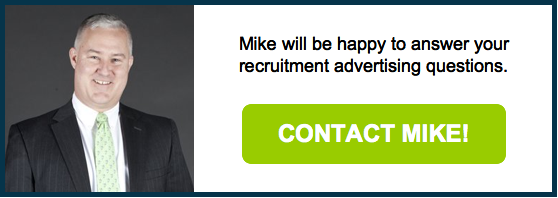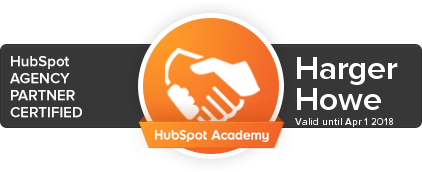I don’t really like to talk about when I fail. I know everyone in the world likes to say that they’re perfectionists and it’s their biggest weakness and strength at interviews, but really, that’s me to a T. I like to master something even if it’s outside of my comfort zone, so failure isn’t something that often creeps into my life.
Last year, my job as an Executive Administrator ended due to a need for boots on the ground in another state. As I didn’t find that state to be a good option for me, I entered the job market for the first time in several years. My previous experience was limited as I had a long-term track record with one company. I had received my first “big girl” job right out of college from a fitness company and I was promoted within the first year. I stayed there for almost three years and then I transitioned to working for the franchisee side of things as an EA. Between those two jobs, that company made up four years of my post-grad life, and though it wasn’t specifically what I wanted to do, I wasn’t sure how to find my next adventure. I was lost.
Shortly after parting ways with that long-term company, I found a job online that I thought would be a great choice for me. The description stated that it was challenging and that they needed someone who could take criticism. It also stated that it was entry level and that the desired candidate would have an interest in their field. In my mind, I had all of those things, so I charged forward and got hired quickly.
I worked for said company for just three months before being told that I was not a good fit. Let me state now that I felt that way from the get-go and I’m sure it was the same for them. I found out swiftly that though, as they mentioned they wanted someone who could take criticism, this particular company would not provide critique or strategies for growth (at least within the department I was a part of). For the first time in my life I made a myriad of mistakes that resulted in misery and frustration for both my supervisor and me. It seemed the more I tried, the more stressed I became and by the end even I didn’t believe that I was qualified for the job.
Though it was unfamiliar territory, when the time came for “the talk,” I was oddly okay with it. While it would be easier to cast blame on the company, I know that I played my part in the disjointed relationship too and my hope is that by sharing my journey I can help other people in similar situations.
Top Things I Learned from Failure
Entry-Level has Different Definitions:
This company was not looking for an entry-level person in the general sense. They wanted someone who had been in the industry and knew how to move forward. I’m assuming they used the phrase entry-level because they wanted someone affordable who had worked in the industry in a limited capacity, but not outside of it entirely. I was an outsider and my supervisor did not have the time or the inclination to train me in the way I needed her to. This led to friction.
You Can Leave:
As I mentioned previously, the dynamic was not working from day one. That sort of situation was entirely new for me and I didn’t realize that I didn’t have to stay. The responsible, committed person that I am made me hold on to that position because I genuinely thought I could excel at it and the truth is it wasn’t for me. I would’ve been much better off just moving on.
Department Sizes and Dynamics Make a Difference:
I firmly believe that the company I worked for was a good one overall. I still have contacts there that I enjoy speaking with. That being said, the department I worked for was beyond small and was clearly stressed. The boss was on edge and that made it hard for me to succeed. When looking for a job people should consider department size and what is expected from that department. Ask questions about the department in your interview and note the subtext in their responses. A large portion of communication is non-verbal or veiled at best.
Failing Hurts and That’s Okay:
For the month that I was unemployed I was in crisis mode. I had never received anything other than positive feedback about my overall job performance and I didn’t know what to do with the feeling of worthlessness. I berated myself and was constantly feeling unworthy. Though I received multiple job offers quickly, I second-guessed my personal value and I let that negativity filter into every part of my mind. That negative outlook only wore off when I realized it wasn’t the company and it wasn’t me; it just didn’t work and that's okay. I had to learn how to love myself and assess who I really was. What did I want? What did I deserve? Where did I need to go?
Advice for Recruiters
Write Clear Job Descriptions:
Just finding candidates is not enough. Turnover is a much bigger problem than sourcing. Sourcing the wrong candidate will cost you much more in the long run and lower your overall recruitment brand. For example, if I were a spiteful ex-employee I could leverage my social presence against the company, and though that wouldn’t be fair, it would be very easy in today’s world. Recruit the smart way. Be clear with your intentions.
#HHWProTip – Consider having your recruitment marketing agency review your job postings (especially with new and exciting roles) and ask them to give you advice on where improvements can be made.
Sometimes You Need a Microsite or a Sub-Page:
Job descriptions that go on for ages don't tend to get fully digested. A microsite or a site extension / sub-page explaining the job or the department in a more visual manner will generate more interest in a position and will make it clear who the job is aimed at.
Test the Candidates:
Interviews are all well and good, but if you’re looking for a specific role with a certain level of interest in your industry, put together an assessment for the potential candidate as a final part of your sourcing process. You could also generate one revolving around company culture! This small step will end up saving you time because if it’s created correctly, that assessment should be able to show you if you have the right person.
Advice for Candidates
Don’t Take Just Anything:
If it seems wrong, well, cliché though it sounds, it probably is. Follow that little voice in your head that is screaming run the other way. On the other side of things, don’t let anyone hold you back. I’ve been cautious most of my life and I’ve watched people make bold moves while I sit back; that isn’t a way to live. You must do what’s right for you! That doesn’t mean make all irresponsible choices, but when something seems like your path, go down it and do it with gusto!
It’s Not Always Your Resume:
Talk to people! Everyone has something valuable to share and you never know when it will come in handy or who you might become life-long friends with. I have met so many people who look perfect on paper and when they open their mouth, nothing comes out. Show up. Be you. Nothing will happen for you until you put yourself out there. What’s the worst that can happen? Someone doesn’t like you? Move on to the next exciting person.
Gear Your Resume Towards What You Want:
Don’t put the word for word job description on your resume because that is boring! Avoid cliché words like “problem solver.” Some of the best advice I ever received was from my college’s career advisor Andrew Whelan. He told me to tell a story with my resume and to put a professional summary at the top that highlights skills that may not be paramount in the position I had at the moment. Always be looking toward the future and it will become much more attainable.
Conclusion
In summation, I was a graduate of the New Hampshire Institute of Art with a BFA in Photography. I moved on to work in corporate franchise relations and was told either I had to run a photo business or continue in administrative jobs for life. Alternatively, I could’ve gone back to school. Well, I didn’t choose those options and I’m sure glad I didn’t. Thanks to going against the grain I’m now in my dream industry with the best people imaginable on my team. If I could have one wish it would be that everyone could do that too. You can; start today.
--
What are your thoughts on hiring? Do you need help with recruitment? Contact us!











